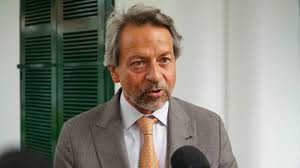
THE European Union (EU) ambassador to Zimbabwe, Jobst von Kirchmann, has urged businesses to come up with bankable projects to secure funding from investors, amid the bloc securing over US$100 million in credit lines for local banks.
On Tuesday, the EU officially held its inaugural three-day EU–Zimbabwe Business Forum to improve bilateral relations, trade, and investment opportunities between the two parties.
Part of this included inviting over 60 companies from 12 EU member States, namely France, Germany, Austria, Finland, Poland, the Netherlands, Italy, Sweden, Belgium, Spain, Portugal, and the Czech Republic.
Local businesses have complained for years about failing to secure investments to fund their projects, which analysts argue is due to such projects not being bankable or feasible long-term.
“It’s not only about getting the money, but how do you get it? Actually, you need a bankable project. You need to be able to present your project in a certain way. That’s why we have also put in technical assistance,” Von Kirchmann said during a panel discussion on Wednesday.
He said that through the EU’s lending programmes funded by the bloc’s European Investment Bank (EIB), over US$100 million had been accessed by Zimbabwean banks such as Cabs, First Capital Bank Zimbabwe, Stanbic Bank Zimbabwe and NMB Bank.
“So, we have signed over US$100 million with NMB (US$39 million), FCB (US$14 million), Cabs (US$17 million) and Stanbic (US$28 million). The European Investment Bank gave a loan to these banks, which has a low interest rate and a tenure of up to seven years, and the banks can then use this tenure,” Von Kirchmann said.
“Most of the banks actually have started using it with even a lower one. As Gerald from NMB was saying, there is no long-term lending available. So even if you get three years, it’s already great, and if you think about it now, if the EIB gives a seven-year loan, it means you can use it twice.”
- CCC urged to push for dialogue over reforms
- A peep into Matenganyika’s artistic closets
- The Bioskop Short Film Competition is back
- Mangwe farmers benefit from agric projects
Keep Reading
He said what was fantastic about local firms was that there had been no default on loans taken.
“So, it’s not entirely free loans, but it’s linked to agriculture, the food industry, and renewable energy, and then cross-cutting issues,” Kirchmann added.
However, many expressed concerns that access to finance in the country remained challenging, citing the inflexibility of economic and policy frameworks.
One of the major policy frameworks hampering local lending is the tight regulatory monetary environment that has created a massive liquidity crunch. Reserve Bank of Zimbabwe (RBZ) deputy governor Innocent Matshe revealed that the bank had so far put in ZiG16,5 billion into the market.
Yet, official RBZ documents show that only a tiny fraction of that amount is in circulation.
“As economic agents, we need to understand that you cannot succeed in business if you are always expecting that you will fail. Let’s build upon the success that we have been expecting to be positive,” Matshe said.
“The Reserve Bank has been committed to ensuring stability, and that anchors everything else because that anchors your exchange rate stability.
“The obtaining exchange rate stability will be sustained through the medium term, supported by strong liquidity and money supply management and increased inflow of foreign currency.”
He said the central bank had been committed to stabilise both prices and the exchange rate.
“We are trying to foster confidence and trust locally and internationally to create an environment where currency is not an issue of interest, but in doing so, we would like to build a system that everyone can trust,” Matshe added.










